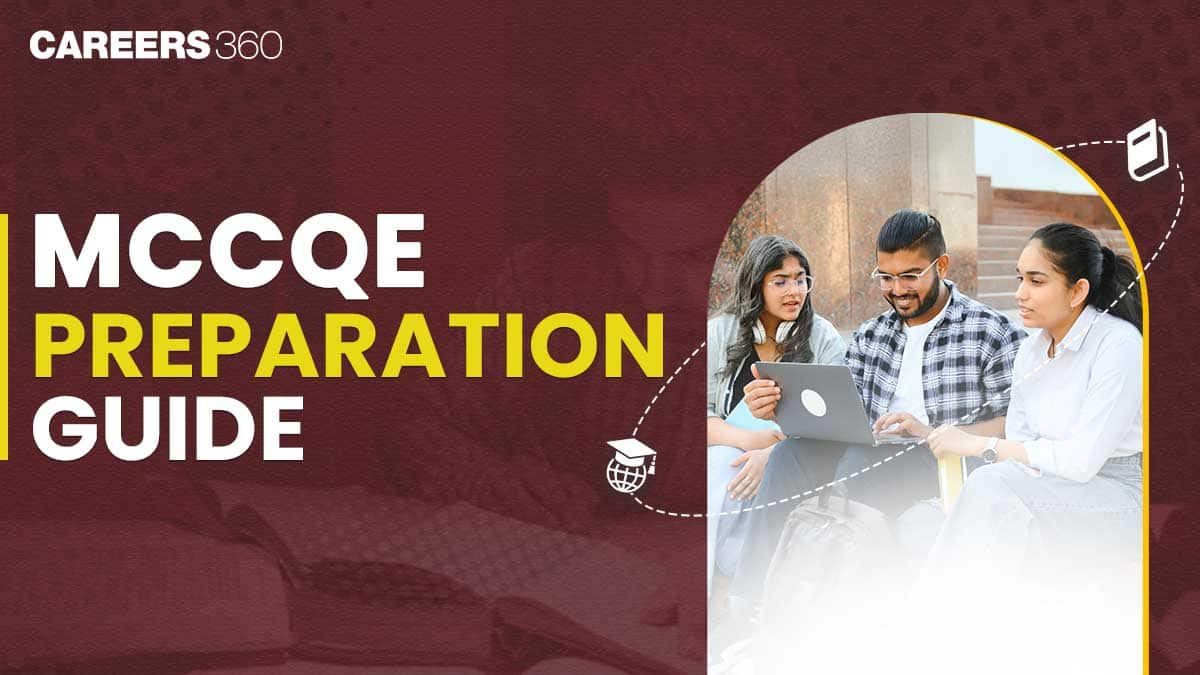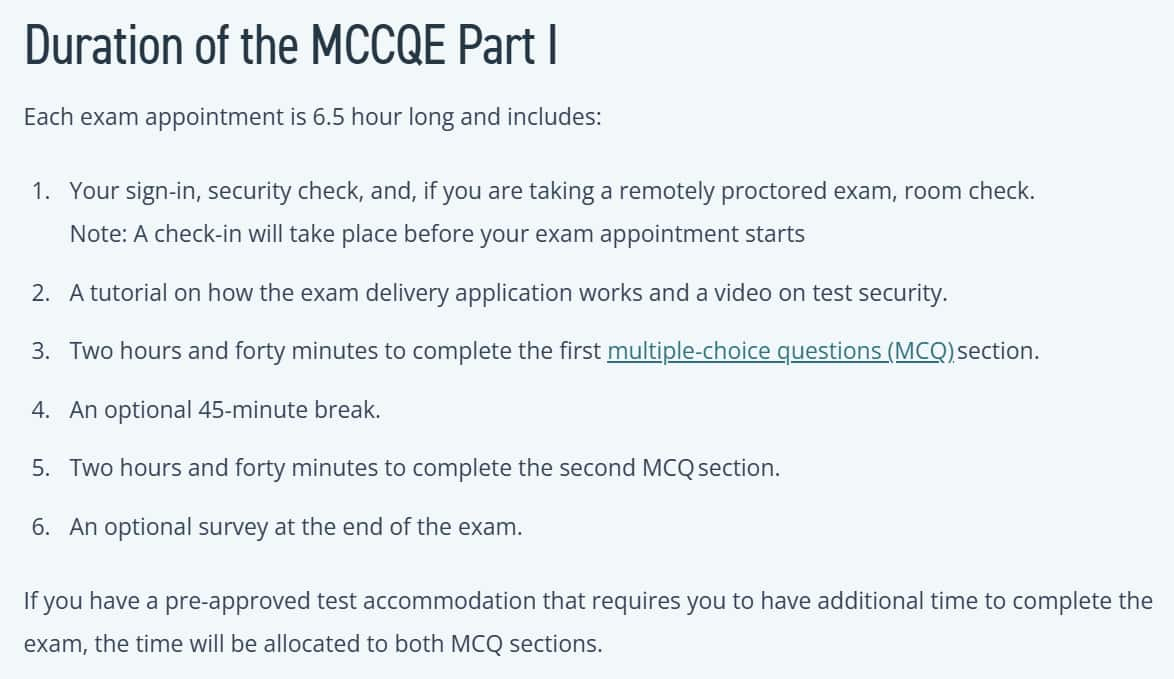Canada MCCQE Part I Preparation Guide
Thinking of practising medicine in Canada? The MCCQE Part I is your gateway to do so. However, it’s tougher than you think. Hence, you need to prepare properly for the MCCQE exam with the help of study materials, mock tests, and mentor guidance. In this article, we have covered everything you need to know to make the right study plan for MCCQE exam in 2026. The MCCQE test is a crucial licensing exam for IMGs planning to practice medicine in Canada. Aspiring doctors in Canada must read this article to prepare for the MCCQE exam. It covers format, fees, pass-score, study strategy and must-use resources for pasing the MCCQE exam with flying colours.
This Story also Contains
- What is MCCQE Part I? Why is it crucial for your medical career?
- Breakdown of MCCQE Exam Pattern and Format: Understand Before Preparation
- MCCQE Pass Rate: Overview
- Ultimate 8-week MCCQE Study Plan
- Top MCCQE Study Resources
- Tips to Prepare for the MCCQE Exam Day
- Conclusion

Also Read:
What is MCCQE Part I? Why is it crucial for your medical career?
The MCCQE Part I is the Medical Council of Canada’s computer-based exam that evaluates your clinical knowledge, problem-solving and professional decision-making. It’s required to earn the LMCC and to move toward licensure in Canada. Fail here, and your residency/licensing timeline stalls. Treat it like the gatekeeper it is. All medical aspirants in Canada who are planning practice medicine in Canada must consider it very important for their career.
Also Read: Study MBBS Abroad
Breakdown of MCCQE Exam Pattern and Format: Understand Before Preparation
As of April 2025, the exam has transitioned to a refreshed MCQ format with approximately 230 questions divided into two sections. The total duration to complete the MCCQE 2026 exam is about 2 hours 40 minutes for 115 questions per section, with each MCQ block allowing roughly 1 minute 23 seconds per question. The entire testing process, including breaks, lasts around 6 to 6.5 hours, emphasising endurance and accuracy. Check:

MCCQE Fees
While preparing it is crucial to budget for the MCCQE exam. The MCCQE Part I application fee for 2026 is roughly CAD 1,500 (non-refundable) plus occasional admin/withdrawal fees and, for IMGs, verification fees. Plan for currency fluctuations and Prometric booking fees if applicable. Missing deadlines or underbudgeting is a fast way to delay your career.
MCCQE Pass Rate: Overview
Pass rates vary: Canadian/US grads historically clear the exam more often (often 88–96% first-time), while international medical graduates (IMGs) have lower first-time pass rates (roughly 48–65% range in recent analyses). These numbers mean targeted, syllabus-aligned prep is non-negotiable for IMGs.
MCCQE Score Benchmark: New Scoring and Pass Score
MCC now reports scores on a 300–600 scale, and the official pass score set in 2025 is 439. The mean sits near 450 (SD of 30), so aim comfortably above 439 to be safe in 2026 in MCCQE exam. This single number determines LMCC eligibility.
Ultimate 8-week MCCQE Study Plan
Week 1–2: Map your study to the MCC Objectives, which includes building one-page sheets per system.
Week 3–5: Daily timed MCQ blocks (60–120 Qs), review explanations, flashcards for weak topics.
Week 6: Full-length mocks under exam conditions (simulate 2×2h40m sections).
Week 7: High-yield revision, ethics, safety and clinical decision questions.
Week 8: Light review, sleep hygiene, exam logistics check (ID, booking, travel).
Do this plan and you’ll convert “maybe” into “pass.” Use question banks, but anchor everything to MCC’s content map.
Top MCCQE Study Resources
Here are the top study materials you can use while preparing for the MCCQE exam Part 1.
MCC official pages & content/outcomes: The source of truth; treat the content map like a syllabus.
High-quality MCCQE1 Qbanks and timed mocks (use ones updated for 2026 changes).
Peer OSCE/clinical discussions and Canadian guidelines for practice questions. (Simulate the decision-making style tested.)
Related Reads:
Tips to Prepare for the MCCQE Exam Day
It is crucial for IMGs to avoid mistakes while appearing for the MCCQE exam as well. Here are the top tips and strategies for prospects appearing for the exam in 2026:
Practice screen reading and pacing (1m23s per question is real).
Don’t leave questions blank, as unanswered means incorrect.
Bring snacks, hydration, and test-day calm: fatigue costs points faster than knowledge gaps.
Conclusion
MCCQE Part I 2026 rewards aligned, timed, and strategy-driven preparation. Know the new format, hit the 439+ target, budget CAD 1,500, and focus your practice on real MCQs tied to MCC objectives. Do that and you tilt the odds from “hope” to high confidence.
Also Read:
Frequently Asked Questions (FAQs)
If you’re not using a top-tier QBank in 2026, you’re already behind! The best-rated options among recent test-takers are CanadaQBank, UWorld (Canada format), and Ace QBank. These are all updated with the latest MCC objectives. To prepare properly, go for at least 3,000+ MCQs before the test day. All official study resources must be utilised as well for MCCQE exam part 1.
The first step toward Canada licensing (MCCQE1) is to study the MCC objectives, not random textbooks. Build an 8-week plan: master high-yield systems, practice timed QBank blocks daily, and simulate full-length tests every weekend. Add in ethics and patient safety. You must review every wrong answer until you understand it completely.
The exam has around 230 multiple-choice questions, split into two sessions of 115 questions each, with 2 hours and 40 minutes per session. Total MCCAQE exam duration is 6 to 6.5 hours, including breaks. The score range is 300 to 600, and you need at least 439 to pass.
Questions related to
On Question asked by student community
Hello,
After completing BPT in India, you must get your qualification approved by the Canadian Alliance of Physiotherapy Regulators (CAPR) .
First, apply for credential assessment , then pass the written and clinical exams . You also need an English test score (IELTS or CELPIP) .
After clearing these, apply
your career plan is valid as it provide knowledge which is relevant to become ips officer but you need to prepare for other subjects too because UPSC's ips broad syllabus includes Indian governance and current affairs too.
I advice to choose b.a in psychology in india as this avoids the
An undergraduate degree abroad is a good investment if you pursue it in canada because it provides quality education at affordable costs, along with a clearer path to post-graduation work and permanent residency,making it a reliable option to settle abroad.
Coming to U.S. it offers top-tier universities and higher salaries,
After completing a BSc in Biochemistry, you can pursue various courses in Canada such as MSc in Biochemistry, Biotechnology, Molecular Biology, Pharmacology, or Clinical Research. These programs offer advanced knowledge and open opportunities in research, healthcare, and industry.
Hello,
Yes, you can pursue MD in Radiology in Canada after completing a B.Sc. in Radiology, but you need to complete a recognized medical degree (like MBBS) first. After that, you must pass the Medical Council of Canada Qualifying Examination (MCCQE) and complete a residency in radiology. Alternatively, you can
Applications for Admissions are open.
Want to study in Ireland? Explore Universities & Courses
Study in Canada
ApplyExplore Universities, Courses & Subjects | Work while study
Study in UK
ApplyApply for upcoming intake & plan your journey
Study in USA
ApplyUniversities inviting applications | Get expert guidance
Study in Australia
ApplyShortlist best ranked universities & get expert guidance